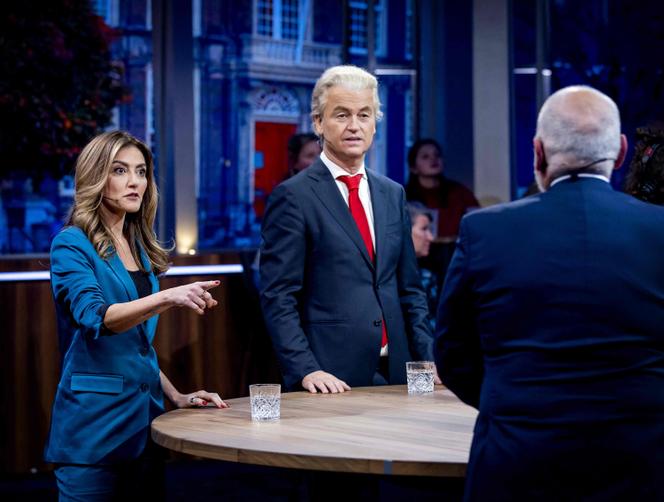


The Dutch go to the polls on Wednesday, November 22, to decide who will succeed Mark Rutte, in power since 2010. The liberal leader put an end to his coalition in July, following the umpteenth quarrel between his Party for Freedom and Democracy (VVD, liberal) and his three allies. This time, it concerned asylum policy, one of the main issues at the heart of the campaign now drawing to a close.
The campaign, which revolved a lot around Pieter Omtzigt and his party, the New Social Contract, ends with an unknown: While the Christian Democrat dissident and advocate of "new governance" has long been at the forefront of the campaign and topped the polls, three of his rivals appeared on Wednesday to be placed to take the pole position from him. Among them – and the most unexpected – was Geert Wilders, leader of the Party for Freedom (PVV), the far-right party he founded in 2006.
Opinion polls, which can be published right up to the eve of the election in the Netherlands, indicate that the anti-Islam populist MP could well be the latest spoiler in a very uncertain election. The latest poll, published by Ipsos on Tuesday, November 21, gave him 27 of the 150 seats in the Second Chamber. Another 29 seats would go to current Minister of Justice Dilan Yesilgöz, who succeeds Rutte as head of the Liberal Party list, and 24 more to Frans Timmermans, former European Commissioner, at the head of the left-wing list combining Social Democrats and Greens. Omtzigt would win 19 seats, far short of the expected performance.
On Tuesday, just over 40% of voters said they were certain of their vote, with the remainder saying they had not yet definitively chosen one of the 21 contenders. Further surprises may be in store.
In the course of a very active campaign, Wilders, who at 60 is probably looking at his last chance to take part in a government, moderated his most radical statements on the Quran – which he wanted to ban –, and mosques – which he wanted to close. This time, he opted to defend a program with strong social connotations. Entitled "The Dutch First," it now calls for priority attention to the health sector, an increase in places in retirement homes and a proactive fight against inflation.
Facing him, Timmermans, handicapped by his image as a "Brussels technocrat" and an unconvincing campaign, according to André Krouwel, a political scientist at the Free University of Amsterdam, raised the risk of an extremist drift. "I don't want to wake up on Thursday in a country where Wilders' party is number one," he wrote on X (formerly Twitter) on November 18. His message, which contained an implicit call for a "useful vote," earned him a rebound in the polls. And a riposte from the other left-wing parties, who fear being totally marginalized.
You have 40% of this article left to read. The rest is for subscribers only.
